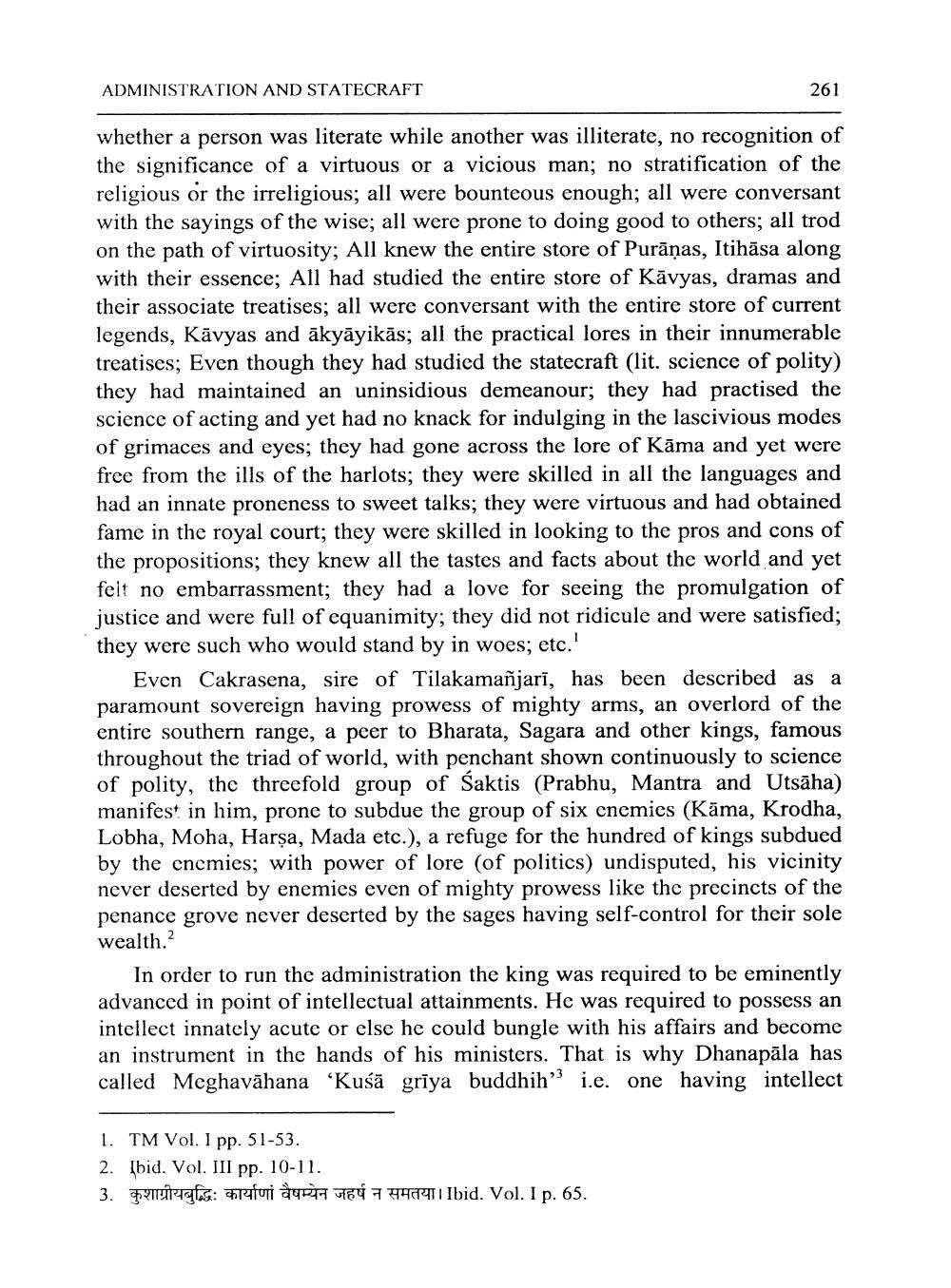________________
ADMINISTRATION AND STATECRAFT
261
whether a person was literate while another was illiterate, no recognition of the significance of a virtuous or a vicious man; no stratification of the religious or the irreligious; all were bounteous enough; all were conversant with the sayings of the wise; all were prone to doing good to others; all trod on the path of virtuosity; All knew the entire store of Purāņas, Itihāsa along with their essence; All had studied the entire store of Kāvyas, dramas and their associate treatises; all were conversant with the entire store of current legends, Kāvyas and ākyāyikās; all the practical lores in their innumerable treatises; Even though they had studied the statecraft (lit. science of polity) they had maintained an uninsidious demeanour; they had practised the science of acting and yet had no knack for indulging in the lascivious modes of grimaces and eyes; they had gone across the lore of Kāma and yet were free from the ills of the harlots; they were skilled in all the languages and had an innate proneness to sweet talks; they were virtuous and had obtained fame in the royal court; they were skilled in looking to the pros and cons of the propositions; they knew all the tastes and facts about the world and yet feit no embarrassment; they had a love for seeing the promulgation of justice and were full of equanimity; they did not ridicule and were satisfied; they were such who would stand by in woes; etc.'
Even Cakrasena, sire of Tilakamañjarī, has been described as a paramount sovereign having prowess of mighty arms, an overlord of the entire southern range, a peer to Bharata, Sagara and other kings, famous throughout the triad of world, with penchant shown continuously to science of polity, the threefold group of Saktis (Prabhu, Mantra and Utsāha) manifest in him, prone to subdue the group of six enemies (Kāma, Krodha, Lobha, Moha, Harsa, Mada etc.), a refuge for the hundred of kings subdued by the enemies; with power of lore (of politics) undisputed, his vicinity never deserted by enemies even of mighty prowess like the precincts of the penance grove never deserted by the sages having self-control for their sole wealth.
In order to run the administration the king was required to be eminently advanced in point of intellectual attainments. He was required to possess an intellect innately acute or else he could bungle with his affairs and become an instrument in the hands of his ministers. That is why Dhanapāla has called Meghavāhana “Kuśā grīya buddhih” i.e. one having intellect
1. TM Vol. I pp. 51-53. 2. Ibid. Vol. III pp. 10-11. 3. RE: grafiti at EU 444 Ibid. Vol. I p. 65.




